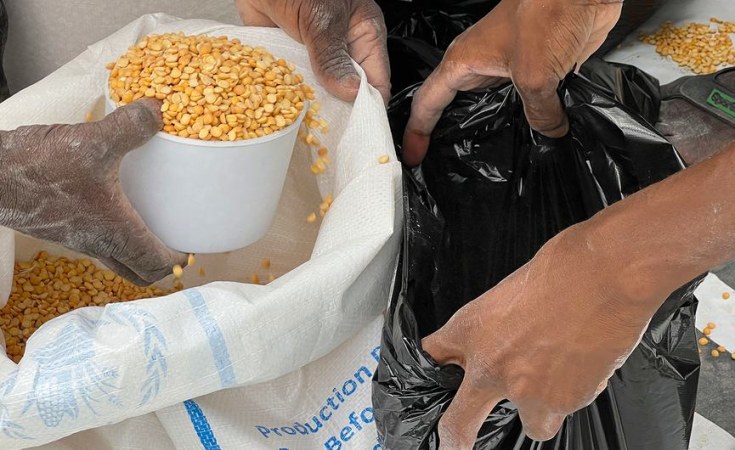Khartoum / Omdurman — A resurgence of violence and shelling in Khartoum state, following two months of relative calm, has led to a further rise in the prices of consumer goods, as demand far outstrips logistical supply streams, already erratic since the outbreak of the war.
Callers from Khartoum complained of an unprecedented rise in the prices of consumer goods. "The prices of consumer goods have increased and gone through the roof," says Aisha El Khair, who lives in the El Salama neighbourhood in southern Khartoum. A sack of sugar reached SDG180,000, a sack of flour SDG70,000, and respectively, a kilogramme of lamb costs SDG18,000, and veal SDG12,000.
Callers from Ombada and Dar Ael Salam neighbourhoods in Omdurman, echoed the concerns of their Khartoum neighbours, saying that the increase in prices is a direct result of the battles that took place in the El Mohandessin and El Mansoura areas in the past few days.
As previously reported by Radio Dabanga, various areas of Khartoum state have witnessed resurgent clashes since the end of last week, returning the situation on the ground in the country's capital to tension after a period of relative calm that lasted for nearly two months.
Ailing Sudanese Pound
As previously reported by Radio Dabanga, the ongoing war has ensured that the value of the Sudanese Pound (SDG) against foreign currencies continues to deteriorate rapidly. At the end of the second quarter of 2023, the price of a Dollar on the parallel market exceeded SDG2,000.
While international forex sources, including www.xe.com, echo the official rate of the Central Bank of Sudan, the effective exchange rate on the parallel market - up to four times the offical rate - can flutuate quickly and change daily.
Before the war, the US Dollar exchange rate in the parallel market stood at SDG60. Over the past 15 months, the Sudanese Pound's value plummeted by more than 350 per cent, leading to soaring prices for commodities, especially fuel.
Economic analyst Ahmed Ibn Omar told Radio Dabanga that the significant rise in the unofficial market exchange rate, and the increasing gap with the official rate, indicate new market pressures or changes in economic conditions.
Hunger in Khartoum
While many people who could fled the hostilities in Khartoum, some seniors, invalids, and those lacking the economic means have been forced to 'shelter in place', with the spectre of hunger and starvation hanging over the once thriving city.
The three main communication and internet providers in Sudan broke down in end February. Most parts of Darfur and Kordofan have been experiencing months-long blackouts, forcing people to use Starlink satellite communication network, the rest of Sudan remains for a large part cut off from the outer world for nearly 40 days. Providers Sudani and Zain in end February returned to states under control of the Sudanese Armed Forces (SAF). The blackout persists, however, in Khartoum, El Gezira, and large parts of Kordofan and Darfur.
The outages caused a severe cash crisis in the country, as banking applications could not be used anymore. This meant not only a large blow to all the Sudanese receiving financial support from relatives or friends abroad but also to those who were depending on organisations like Hadhreen, which depends on donations.
The charity kitchens, established by activists in Khartoum state after the war erupted in April last year, are also unable to investigate and aid emergency cases.
Last week, the emergency room said that approximately 240,000 families in Khartoum state were threatened with severe hunger, saying that "the closed kitchens were the only refuge for those who have no breadwinners and no food".


